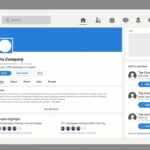When it comes to making money online, there is no such thing as waiting for the right time to get started. Anyone with enough determination and willingness to learn can make money through several online jobs in 2025. The best part is that now, not tomorrow or later, is the best time to start, especially when Kenya’s internet penetration rate stands at 48.0 percent with 27.4 million internet users as of early 2025, and accessing the internet has become increasingly affordable.
I know there have been questions, especially for those following up on Reddit threads, about the possibility of artificial intelligence (AI) threatening several online jobs. While this might be true for some roles in the future, AI has not yet achieved Artificial General Intelligence (AGI), so concerns about its full capabilities may be premature. My advice is that AI will only replace you if you lack the necessary skills and adaptability. With the right skills and willingness to evolve with technology, you have nothing to worry about.
In Kenya, working online or remotely comes with many perks, including the ability to work at flexible hours and from any location without being questioned. The best part is M-Pesa integration. This payment solution from Safaricom has made it significantly easier for Kenyan freelance workers to receive money from paid gigs without the bureaucratic hardships of going through traditional banks or PayPal, which sometimes have payout issues.
However, a word of caution to those looking forward to getting started with online jobs in Kenya: you must be prepared. First, ensure you have the right skills to help you land the job you want, especially in this age of AI integration. Second, have the essential tools – I recommend owning a laptop or PC desktop, which makes your work significantly easier. Third, a stable internet connection is necessary to ensure you can work comfortably without issues such as internet lag or inability to submit work before deadlines. Finally, knowing the best freelance platforms from which you can get work is essential, such as Upwork, Fiverr, LinkedIn, and emerging Kenyan platforms like ApexListings.
Therefore, in this guide, I have carefully curated the best 10 online jobs that pay via M-Pesa in 2025. Make sure to read to the end so you don’t miss any opportunity.
10 High-Demand Online Jobs in Kenya (2025 Edition)
So, how do you work online and get paid in Kenya via M-Pesa? Below are the best 10 jobs to get started today and earn real money.
1. Creating Your Blog

The best way to achieve genuine independence in Kenya and make money online is to start your own blog website. Here’s a word of caution for those trying to venture into this particular avenue: you must understand that, based on my experience, blogging, especially in a developing country like Kenya, is not something that will make you rich overnight. You must be willing and dedicated enough to invest in it as a business to see meaningful results.
To succeed at blogging in 2025 in Kenya, everything depends on how much website traffic your blog attracts. With 27.4 million internet users in Kenya, there’s a substantial audience to tap into. You can earn good money primarily through AdSense, which pays an average of Ksh 500–2,000 per 1,000 views. However, the real power of blogging lies in exploring multiple monetization strategies such as affiliate marketing, sponsored posts, and digital product sales. As your blog grows, you can earn over Ksh 300,000 monthly.
My secret to successful blogging in Kenya, developed over several years of experience, is to start by identifying and specializing in a specific niche instead of going for general topics where the market is already saturated. Focus on areas where you have genuine expertise or passionate interest.
Starting a blog in Kenya is surprisingly affordable. It costs between Ksh 500 and Ksh 5,000 to purchase a domain and hosting service, and you can use free platforms like WordPress to get started. The initial investment is minimal compared to the potential returns.
2. Freelance Writing

For a very long time in Kenya, when you ask anyone about online jobs, writing is typically the first suggestion, and there’s a good reason for that. Writing is easier to learn as a skill, and there are numerous freelance platforms offering thousands of jobs daily with competitive pay.
What’s the difference between freelance writing and blogging? While there isn’t a massive difference, blogging focuses on building and monetizing personal websites, whereas freelance writing involves crafting client-driven content like articles, advertising copy, and technical manuals for businesses and publications.
Similar to blogging, success in freelance writing demands the right skills in your area of specialization, SEO techniques, and audience-centric storytelling. As a freelance writer, your daily tasks mainly involve creating varied content formats, from persuasive sales copy to expert content that demonstrates your authority by prioritizing E-E-A-T (Experience, Expertise, Authority, Trustworthiness) standards.
You’ll need essential tools such as Grammarly for editing, Ahrefs for keyword research, and project management platforms like Trello to give you an advantage over other freelance writers in this competitive market.
Based on various reports and personal experience, freelance writers in Kenya earn anywhere from Ksh 20,000 to Ksh 150,000+ monthly, depending on your clients and the expertise you possess. The best platforms for writing jobs in Kenya include local sites like Writers Admin, and international platforms like Upwork, Fiverr, and LinkedIn.
3. Virtual Assistance (VA)

Virtual assistance is undoubtedly one of the best-paying online jobs in Kenya. Freelancers earn from Ksh 30,000 for beginners to Ksh 100,000+ for experienced VAs monthly.
As a VA, your role involves providing remote administrative, technical, or creative support for businesses worldwide. Your tasks include calendar management, CRM updates, email management, and increasingly, AI-driven content moderation. You need to be fluent in tools like Trello, Slack, Asana, and Grammarly.
Getting virtual assistant work in 2025 requires differentiation, especially with the rise of AI platforms like ChatGPT. Standing out requires specializing in niche areas, such as social media management, SEO optimization, and telehealth coordination. Many clients now demand certifications in platforms like HubSpot, QuickBooks, or specific industry software.
If you’re starting your virtual assistant journey in Kenya, begin with local platforms like Ajira Digital or Vyemma, which connect Kenyan VAs to small and medium enterprises needing such services. International platforms to consider include Toptal, Fancy Hands, and Uassist.me, which often pay higher rates.
4. Web Design & Development

One important lesson I’ve learned through professional experience is that you don’t need a university degree to become a web designer or developer. Companies favor web designers with demonstrated skills rather than just academic credentials. However, some roles still require diploma, bachelor’s, or master’s certifications for higher-level positions.
Web design and development involves crafting visually compelling, functional websites. Web designers focus on UI/UX principles, mobile responsiveness, and visual storytelling, using tools like Figma and Adobe XD to create wireframes and prototypes that prioritize user experience.
Website developers translate these designs into functional sites using coding languages like HTML, CSS, and JavaScript, often leveraging CMS platforms like WordPress for scalability and ease of management.
Web design and development offers excellent flexibility and high earning potential. You can choose to work remotely or attend physical meetings with clients. Salaries range from Ksh 30,000 to over Ksh 150,000 monthly, with top developers securing international contracts at $20–50/hour through platforms like Upwork.
5. Graphic Design

I had friends at university who worked as graphic designers, maintaining a stable flow of jobs that guaranteed consistent monthly income. They started with basic skills, which shows what you can achieve by dedicating time and effort to learning.
Unlike generic content creation, graphic design merges visual storytelling with technical precision to solve business problems, from logo design to immersive marketing campaigns. In our digital-centric world, both small and large businesses prioritize having a strong digital presence. As a designer, you can help them scale their businesses while building your own income stream.
Graphic designers in Kenya earn from Ksh 20,000–150,000 monthly, while top-tier designers secure international contracts at $30–50/hour through platforms like Upwork, 99designs, and Behance.
6. Social Media Management & Marketing

Social media managers in Kenya create culturally resonant content, optimize for algorithm changes, and deploy ROI-driven strategies. They balance graphic design using tools like Canva and Adobe Suite with data analytics via Hootsuite or Meta Business Suite to track engagement metrics and refine campaigns.
To stand out as a social media manager in 2025, you need to master emerging platforms like YouTube Shorts, TikTok, and LinkedIn carousels. Video content dominates user interactions, especially with smartphone-driven internet access becoming more prevalent.
Adaptability is crucial for social media managers. Technology changes rapidly, and algorithm updates demand swift pivots. Community management requires empathy to handle real-time customer queries and foster brand loyalty. Success comes from balancing both technical skills and human connection.
Social media managers rank among the highest-paid online workers in Kenya, with salary ranges between Ksh 28,000 and Ksh 230,000 monthly. Opportunities can be found on local platforms like MyJobMag and BrighterMonday for SME clients, while Upwork and LinkedIn connect managers to global clients paying $20–$50 hourly.
7. Affiliate Marketing

Affiliate marketing operates on a performance-based model where marketers earn commissions by promoting third-party products through personal blogs, social media pages, or dedicated marketing channels. This income model has existed for years, with several Kenyan bloggers and marketers claiming to earn over $1,000 monthly as affiliate marketers.
Success in affiliate marketing for 2025 requires adapting to technological shifts. Modern affiliate marketing demands AI-enhanced audience targeting, multi-platform content distribution, and data-driven conversion optimization. You can craft campaigns across TikTok shoppable videos, AI-generated blog posts, and WhatsApp commerce channels, leveraging tools like SEMrush for keyword analysis and Canva for visually striking creatives.
For beginners in Kenyan affiliate marketing, specializing in specific niches like e-commerce, fintech, and health products will lead to better success than experimenting with multiple products simultaneously. Using analytics platforms like Google Analytics to track performance and optimize ROI gives you competitive advantages.
Common affiliate platforms in Kenya include Jumia KOL, Safaricom Affiliate Program (via Digiduka and others), betting affiliate programs like Betika, Odibets, and SportPesa, plus international programs like Amazon Associates. Success requires choosing products that align with your audience’s needs and interests.
8. Online Tutoring

Online tutoring offers numerous opportunities to earn income by teaching students various subjects where you have expertise. The internet has made it possible to connect with learners globally, expanding your potential student base significantly.
Success in online tutoring means staying current with educational technology. You can enhance your teaching effectiveness by using tools like Zoom Breakout Rooms and Miro whiteboards, while platforms like Moodle enable course customization aligned with competency-based education frameworks.
Specializations in STEM subjects like mathematics and sciences, plus African languages like Swahili, tend to command higher pay rates. Kenyan freelance tutors earn anywhere from Ksh 20,000 to above Ksh 150,000 monthly, while top tutors secure international contracts at $30–50/hour through platforms like Preply and iTalki.
For online tutoring jobs in Kenya, consider local platforms like Eneza Education, which partners with schools to digitize curricula, and Kidato, which offers K-12 STEM tutoring for Pan-African clients. International platforms like Cambly connect tutors with learners paying USD for English fluency coaching, while Outlier.org hires subject experts for university-level courses at rates significantly above local averages.
9. Transcription & Captioning

Kenyan freelancers specializing in transcription typically earn Ksh 60,000 to Ksh 150,000 monthly, depending on project complexity and turnaround time. Working with international clients pays between $1 and $3 per audio minute, enabling higher revenue streams.
As a transcriptionist, your daily work involves converting audio and video recordings into accurate, efficiently synced, high-quality verbatim text transcripts. Your job entails listening to recordings ranging from webinars and podcasts to corporate meetings, rendering every word, pause, and emphasis into written form.
Success in transcription requires familiarity with industry terminologies such as timestamps, speaker identification, and verbatim notation. Proficiency in software like Otter.ai, Express Scribe, and Adobe Premiere Pro for caption syncing is essential for professional-quality work.
To excel in this niche, improve your typing accuracy, develop strong command of English and Swahili, pay attention to context, maintain consistent punctuation, and research obscure references when necessary. Each platform has industry-standard style guides that you must follow to deliver quality work and build your reputation.
Platforms for getting started with transcription in Kenya include local sites like Wingu Digital Training and international platforms like TranscribeMe, Rev, and Scribie.
10. Data Entry & Microtasks

For those seeking data entry jobs and microtasks in Kenya, understanding your daily responsibilities is essential for mastering these roles and winning more clients. These jobs encompass numerous online tasks, from inputting spreadsheet data and tagging images to completing surveys and basic administrative tasks.
Data entry work requires accuracy, speed, and familiarity with tools like Microsoft Excel, Google Sheets, and database platforms such as MySQL or Airtable. Attention to detail is crucial since errors can affect client businesses and your reputation.
The demand for data entry and microtasks is growing in Kenya, with freelancers in this niche reporting steady income flows from Ksh 10,000 to Ksh 70,000 monthly, depending on task complexity and volume. While individual tasks may seem small, consistent work can build substantial monthly income.
Popular platforms for data entry jobs in Kenya include local options like Pawns.app and SagaPoll, plus international sites like Clickworker and OneForma, which offer competitive rates ranging from $0.05 to $0.10 per task.
Frequently Asked Questions
Which online jobs in Kenya pay the highest amounts through M-Pesa?
Web development, graphic design, and specialized virtual assistance typically offer the highest earning potential, with experienced professionals earning Ksh 100,000+ monthly.
How quickly can I start earning money from these online jobs?
Simple tasks like data entry and microtasks can generate income within days, while skills-based jobs like blogging and web development may take weeks or months to build sustainable income.
What equipment do I need to start working online in Kenya?
Essential equipment includes a reliable computer or laptop, stable internet connection, and basic software tools relevant to your chosen field.
Conclusion
I hope this article has provided clarity about the best online jobs in Kenya. As you can see, earning substantial income through online work – up to Ksh 300,000 and more monthly – is achievable with dedication and the right approach.
Many online job opportunities exist in Kenya beyond what we’ve listed in this guide. These positions offer competitive pay and convenient withdrawal methods, including M-Pesa or platforms like PayPal, which now integrates with M-Pesa for easier access to international payments.
If you want to get started, proceed cautiously to avoid losing money to scams. Research platforms thoroughly, start with small projects to build your reputation, and gradually take on more complex, higher-paying work as your skills and client base develop. All the best on your online earning journey!












